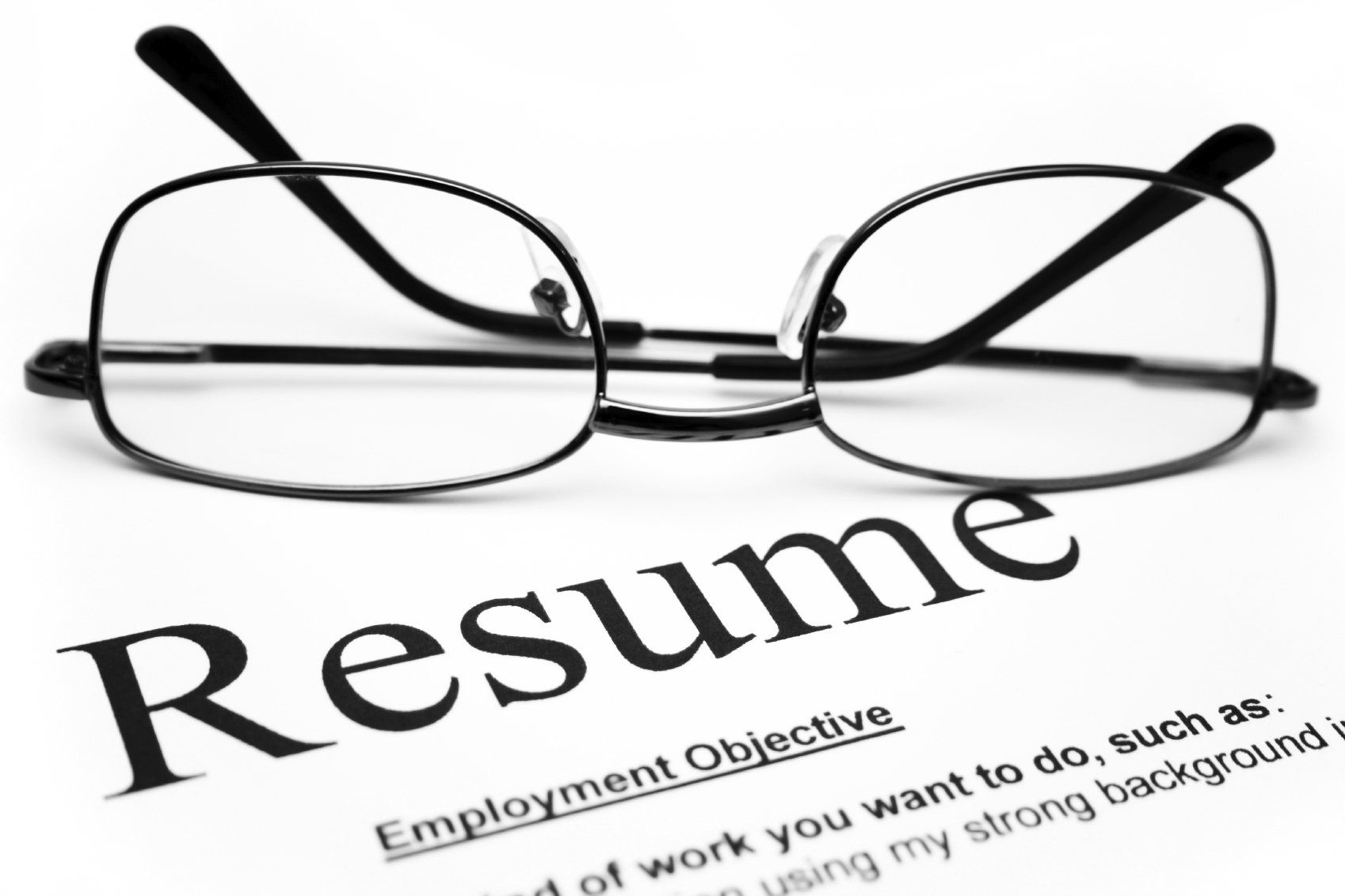

Blog
Tips for Finding Jobs for Retirees
Returning to Work After Retirement?
Introduction
Retirement can be a challenging transition for many people. With no more regular paycheck coming in, it can be difficult to make ends meet and survive in retirement. To combat this, many retirees are turning to jobs for retirees as a way to supplement their retirement income.
Whether you're looking for part-time work or something more permanent, job hunting can be tricky. Fortunately, there are many hacks out there that can make the process easier.
In this blog post, we'll discuss some of the best job hunt hacks for finding jobs for retirees.

The Reality of Job Hunting After Retirement

Job hunting after retirement can present its own set of challenges.
While there are certainly jobs for older people out there, the reality is that the job market can be competitive and sometimes discriminatory towards older individuals.
Ageism is a real issue that many retirees face when trying to reenter the workforce. It can be disheartening to face rejection or be overlooked for job opportunities simply because of your age.
However, it's important to remember that working after retirement has its benefits.
Not only can it provide a much-needed income boost, but it can also offer a sense of purpose and fulfillment. Many retirees find that continuing to work allows them to stay mentally and socially active, providing a sense of structure and routine to their days.
Additionally, job hunting after retirement can be an opportunity for lifelong learning.
It is a chance to acquire new skills or refine existing ones. Don't be afraid to explore different industries or job roles that you may not have considered before. Embrace the challenge and view it as an opportunity for personal and professional growth.
The Benefits of Working During Retirement

Working after retirement offers numerous benefits for older individuals.
First and foremost, it provides a steady income source that can help supplement retirement savings and ensure financial security. With jobs for older people becoming more accessible, retirees can find opportunities that align with their interests and skills, allowing them to continue pursuing meaningful work.
Moreover, working after retirement promotes lifelong learning.
By stepping into a new job or industry, retirees have the chance to acquire new skills and expand their knowledge.
This not only keeps the mind active but also enhances personal and professional growth.
Additionally, working after retirement offers a sense of purpose and fulfillment.
It provides structure and routine to daily life and keeps retirees mentally and socially engaged.
The opportunity to connect with coworkers, contribute to a team, and make a difference in the workplace can have a positive impact on overall well-being.
So, don't view retirement as the end of your working life, but rather as a new chapter full of exciting possibilities. Embrace the benefits of working during retirement and discover the joy that comes with continued engagement and growth.
Identify Your Interests and Skills

When looking for jobs after retirement, it's important to take the time to identify your interests and skills.
This step is crucial in finding fulfilling and meaningful employment.
Start by reflecting on your past experiences and the activities that bring you joy.
What are you passionate about? What skills have you developed over the years?
Consider both your professional and personal interests. Are you someone who loves to help others?
Perhaps jobs in healthcare or caregiving would be a good fit for you.
Do you have a knack for organization and attention to detail? Administrative roles or project management might be worth exploring.
It's also essential to think about lifelong learning. Are there any new skills or knowledge areas you'd like to develop?
Are there industries or job roles that have always intrigued you?
This is an excellent opportunity to expand your horizons and embrace new challenges.
You might even want to consider taking an online course (or two) to sharpen or upgrade your skills.
Update Your Resume and Cover Letter

Updating your resume and cover letter is crucial when searching for jobs after retirement.
It's important to showcase your skills and experiences in a way that is relevant and appealing to potential employers. Start by reviewing your existing resume and make sure it reflects your most recent work history and achievements. Consider removing outdated or irrelevant information and focus on highlighting transferable skills that are applicable to the job you're seeking.
In addition to updating your resume, don't forget to tailor your cover letter for each application. Use this opportunity to explain why you're interested in the specific job and how your skills and experience make you a strong candidate. Be sure to address any concerns employers may have about hiring someone who is retired. Emphasize your reliability, flexibility, and commitment to continued learning and growth.
Tap into Your Network

Finding a job after retirement can be challenging, but one of the best ways to increase your chances of success is by tapping into your network. Your network consists of friends, family, former colleagues, and acquaintances who may have connections to job opportunities or valuable insights.
Start by reaching out to your contacts and letting them know that you are actively looking for a job.
They may be aware of job openings in their companies or industries and can provide you with valuable information or referrals. Don't underestimate the power of word-of-mouth recommendations.
Additionally, consider joining professional organizations or networking groups related to your field of interest.
Attend industry events or conferences to meet people who may have valuable connections or knowledge about job opportunities.
Social media platforms like LinkedIn can also be powerful tools for networking. Connect with professionals in your field and engage in conversations to expand your network and showcase your expertise.
Remember, networking is a two-way street. Be open to helping others in your network as well. Offering your support and expertise can strengthen your relationships and increase the likelihood of receiving help when you need it.
Utilize Online Job Boards and Websites

In today's digital age, online job boards and websites have become invaluable resources for job seekers, including retirees. These platforms provide a wealth of job opportunities from various industries, allowing you to search for jobs that align with your interests and skills.
Sites like Indeed, LinkedIn, and Monster are popular choices, as they offer a wide range of job listings and allow you to create a profile that showcases your experience and qualifications.
When utilizing online job boards and websites, it's important to be proactive and regularly check for new job postings. Set up email alerts for relevant job titles or keywords, so you never miss an opportunity.
Additionally, take advantage of the advanced search filters these platforms provide.
You can narrow down your search by location, salary range, and other preferences to find the best fit for you.
Another benefit of online job boards and websites is the ability to research companies before applying.
Read company reviews and check their website to gain insight into their culture and values.
This information can help you determine if the company is a good fit for you and aligns with your retirement goals.
Remember to tailor your application materials for each job posting.
Take the time to craft a personalized cover letter that highlights your relevant skills and experience.
Customize your resume to include keywords that match the job description, increasing your chances of being noticed by hiring managers.
Finally, don't forget to leverage your online presence.
Maintain an updated LinkedIn profile that highlights your professional achievements and connect with professionals in your industry.
Join relevant LinkedIn groups and engage in discussions to expand your network and potentially discover job opportunities.
By utilizing online job boards and websites effectively, you can increase your chances of finding rewarding employment after retirement.
Embrace the convenience and accessibility these platforms offer, and make them an integral part of your job hunt strategy.
Consider Freelancing or Starting a Small Business

If you're looking for flexibility and control over your work schedule, freelancing or starting a small business might be the perfect option for you. These avenues provide the opportunity to be your own boss and pursue your passions on your own terms.
Freelancing allows you to leverage your skills and expertise to offer services to clients on a contract basis.
This could include anything from writing and graphic design to consulting or coaching.
With freelancing, you have the freedom to choose the projects you want to work on and set your own rates.
Starting a small business is another avenue to consider.
Whether you have a hobby or a unique product idea, starting a small business allows you to bring your ideas to life.
It can be challenging at times, but it also offers a sense of fulfillment and the potential for financial success.
Before diving into freelancing or starting a small business, it's important to do your research and create a solid business plan. This will help you understand your target market, identify competitors, and outline your marketing and financial strategies. Don't be afraid to seek advice from professionals or join online communities to learn from others who have successfully embarked on this journey.
Be Open to Different Job Opportunities

When searching for jobs after retirement, it's important to be open to different job opportunities.
Don't limit yourself to what you have done in the past or what is considered "traditional" for retirees.
Embrace the chance to explore new industries, roles, and experiences.
Consider jobs that may not have been on your radar before.
Think outside the box and look for positions that align with your interests and skills, even if they are in a different field. For example, if you have a love for animals, consider working at a local pet store or animal shelter.
If you have a passion for art, explore opportunities at galleries or museums.
It's also worth considering part-time or temporary positions.
These types of jobs can provide flexibility and a chance to dip your toes into different industries.
You may discover a hidden passion or talent that you never knew you had.
Prepare for Job Interviews

Preparing for job interviews is a crucial step in your job hunt after retirement.
It's essential to present yourself as a capable and experienced candidate to potential employers.
Here are some tips to help you prepare for job interviews:
1. Research the company:
Take the time to thoroughly research the company you're interviewing with.
Familiarize yourself with their mission, values, and recent accomplishments.
This will allow you to speak confidently about how your skills and experience align with their goals.
2. Review common interview questions:
Brush up on common interview questions and practice your answers.
Be prepared to discuss your relevant experience, strengths, and how you handle challenges.
Practice articulating your skills and accomplishments concisely and confidently.
3. Highlight your transferable skills:
As a retiree, you may have a wealth of transferable skills from your previous career.
Emphasize these skills during the interview, showing how they can be applied to the position you're applying for. Demonstrate how your experience makes you a valuable asset to the company.
4. Dress professionally:
Make a good first impression by dressing professionally for the interview.
Even if the company has a more casual dress code, it's always better to be overdressed than underdressed.
Dressing professionally shows respect and conveys your commitment to the interview process.
5. Prepare questions to ask:
Prepare a list of questions to ask the interviewer.
This shows your interest in the company and the role.
Ask about the company culture, opportunities for growth, and how the company supports its employees.
6. Practice good body language:
During the interview, maintain good eye contact, sit up straight, and use confident body language.
Smile and show enthusiasm for the position and the company.
Remember, nonverbal cues can make a significant impact on how you're perceived.
7. Follow up with a thank-you note:
After the interview, send a personalized thank-you note to the interviewer.
Express your gratitude for the opportunity to interview and reiterate your interest in the position.
A thoughtful thank-you note can leave a lasting positive impression.




